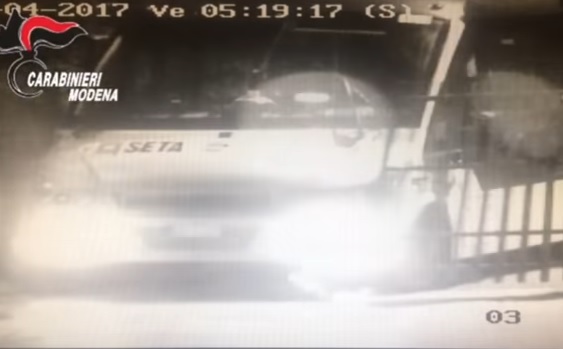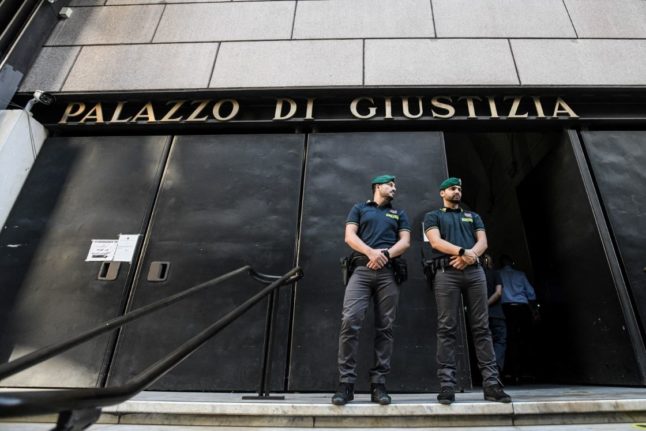The damage to the school in Carpi near Modena was estimated at over 70,000 euros, while a further 100,000 euros of damage was caused to the buses, according to local paper Il Resto di Carlino.
The three teenagers, aged between 16 and 17 years old, were all current or former students of the Meucci di Carpi school, police said.
The school's headteacher, Teresa De Vito, had said at the weekend that she did not believe the school had been targeted deliberately, but rather due to its “logistical position”.
“There is no link between the serious criminal act and the daily life at the school,” De Vito said, before the culprits had been identified.
The trio had stolen five buses from a local depot before abandoning three and using the remaining two to break through the outer gates and entrance to the school in the early hours of Friday morning.
The video below, shared by Modena's police force, shows CCTV footage of the act.
“What happened is very serious,” said Alberto Bellelli, the mayor of Carpi, which is home to around 71,000 people, on Saturday. “This isn't a simple act of vandalism or a prank – it is a criminal act.”
The youngsters are being held in Bologna's juvenile prison and face charges of theft, damage to public property and interruption of public services, since the school will remain closed until Wednesday.
Police identified the culprits through CCTV footage, despite the fact that the teens had covered their faces with hoods and scarves, but said on Sunday that they had not excluded the possibility that others were involved in the crime.



 Please whitelist us to continue reading.
Please whitelist us to continue reading.